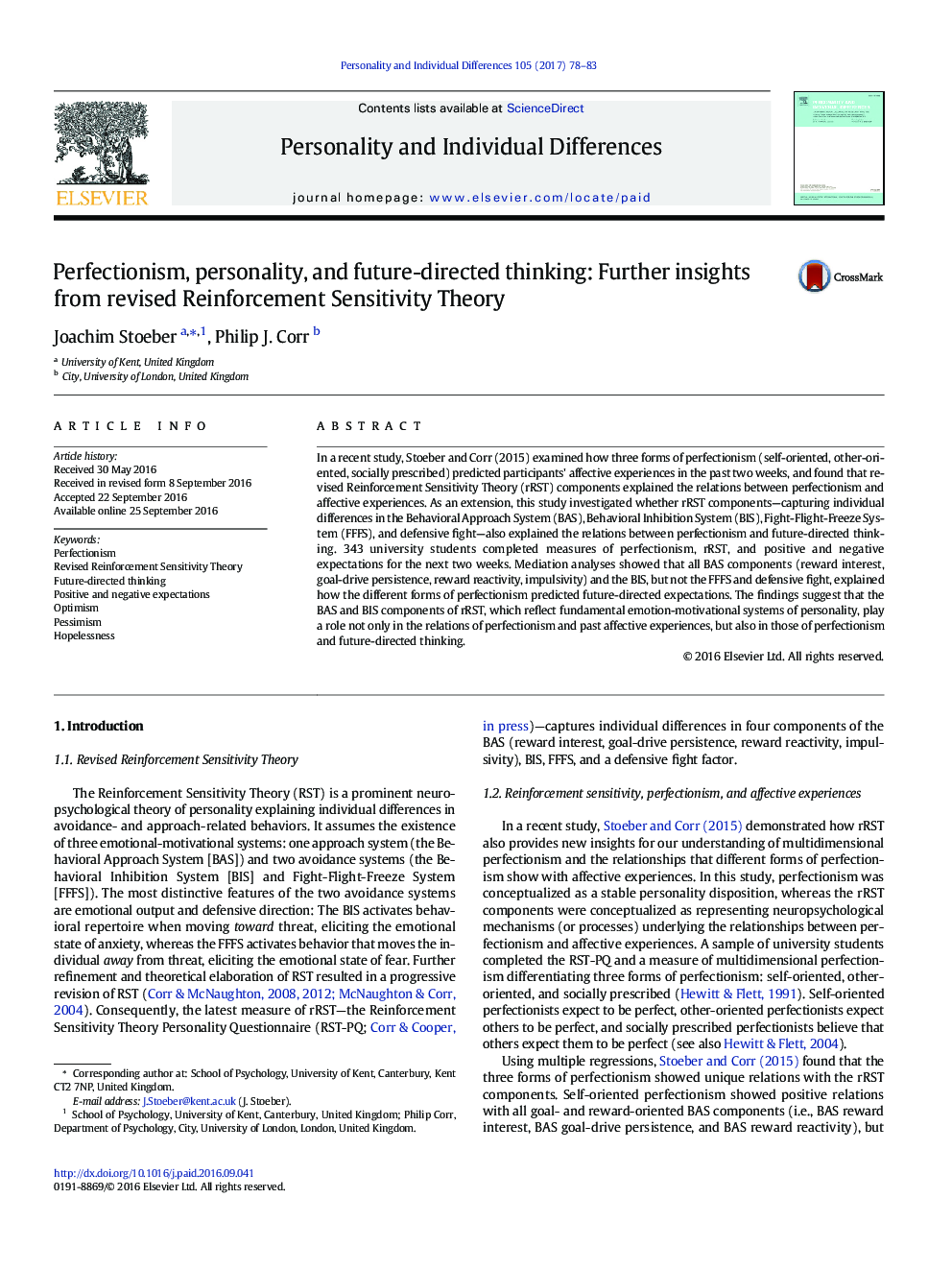| Article ID | Journal | Published Year | Pages | File Type |
|---|---|---|---|---|
| 5036032 | Personality and Individual Differences | 2017 | 6 Pages |
â¢Perfectionism and revised Reinforcement Sensitivity Theory (rRST)â¢We studied perfectionism, rRST factors, and future-directed thinking (FDT).â¢Unique relations were found between perfectionism and rRST factors.â¢rRST factors mediated the relations between perfectionism and FDT.â¢New light is shed on the underlying dynamics of perfectionism and FDT.
In a recent study, Stoeber and Corr (2015) examined how three forms of perfectionism (self-oriented, other-oriented, socially prescribed) predicted participants' affective experiences in the past two weeks, and found that revised Reinforcement Sensitivity Theory (rRST) components explained the relations between perfectionism and affective experiences. As an extension, this study investigated whether rRST components-capturing individual differences in the Behavioral Approach System (BAS), Behavioral Inhibition System (BIS), Fight-Flight-Freeze System (FFFS), and defensive fight-also explained the relations between perfectionism and future-directed thinking. 343 university students completed measures of perfectionism, rRST, and positive and negative expectations for the next two weeks. Mediation analyses showed that all BAS components (reward interest, goal-drive persistence, reward reactivity, impulsivity) and the BIS, but not the FFFS and defensive fight, explained how the different forms of perfectionism predicted future-directed expectations. The findings suggest that the BAS and BIS components of rRST, which reflect fundamental emotion-motivational systems of personality, play a role not only in the relations of perfectionism and past affective experiences, but also in those of perfectionism and future-directed thinking.
